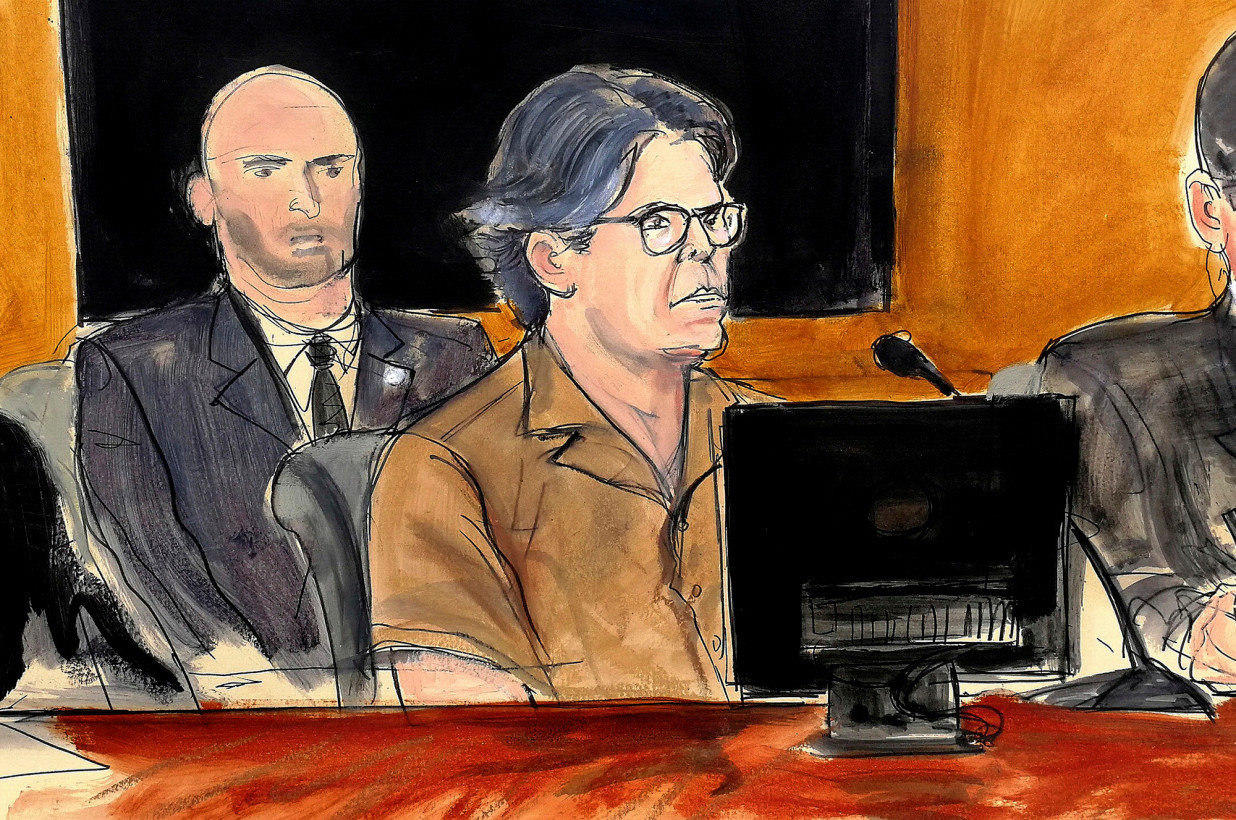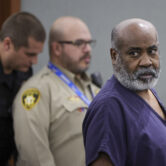BROOKLYN, N.Y. (CN) — Imprisoned sex cult leader Keith Raniere began a multipronged attack on his conviction Tuesday, seeking a reversal in appeals court and separately in federal court accusing the government of fabricating child pornography and planting it on his computer.
Raniere, 61, is serving a life sentence after a jury found him guilty of leading something of a sexual pyramid scheme known as DOS or the Vow within his self-help company NXIVM. During a six-week trial in the Eastern District of New York, the government built its case against Raniere both with testimony from several cooperating witnesses from NXIVM's upper ranks and the sex slaves they recruited for Raniere and branded with his initials.
But Raniere moved to vacate his convictions Tuesday morning on the basis of forensic computer expert findings that he says indicates the FBI altered evidence against him consisting of pornographic photographs depicting children.
In an interview Tuesday, the attorney Joseph Tully with Tully & Weiss in Martinez, Calif., referred to their filing in Brooklyn Federal Court as “dropping a nuclear bomb” on prosecutors.
“We can prove to a scientific certainty, in some instances, that the FBI tampered with the digital evidence in the case against Keith Raniere,” Tully told Courthouse News.
Tully said three experts found “massive amounts of digital anomalies” in the government’s evidence, which refute testimony that Raniere in 2005 took nude photographs of a 15-year-old member of DOS named Camila. In order to frame Raniere, he claims, the government fudged the dates of the images.
“All of the anomalies all favor the government’s narrative that Camila was underage at the time she started a relationship with Keith Raniere,” Tully said. “It just leads you to the conclusion that the FBI was engaged in this tampering.”
At Raniere’s sentencing, Camila described meeting him when she was 13 years old; she had just taken second place in her eighth-grade spelling bee. Two years later, Raniere had sex with her, she said in court, when he was 45 years old. Later, she would be held in a room for two years on Raniere’s orders because she kissed another man.
“It felt like I would never be free,” Camila said. “There was no way out.”
Tully also turned to an appellate court Tuesday across the river in Manhattan to overturn Raniere’s conviction, arguing that the government was too broad in defining “commercial sex acts” involving the women in DOS.
“Any sex act where somebody buys the partner dinner afterward would be a commercial sex act,” under the government’s definition, the attorney told a three-judge panel in the Second Circuit this afternoon. “There needs to be a quid pro quo, causal relationship.”
In his brief, Tully called out an incident in which the actress Allison Mack who became leader in the NXIVM cult sent one victim named Nicole into a room, blindfolded, where Camila performed oral sex on her in front of Raniere.
“The government distorts the meaning of 'commercial sex' beyond recognition,” Tully writes, noting that the relevant statute “was designed to punish sexual exploitation for economic profit, not sex acts with unsubstantiated connections to vague, unquantifiable benefits.”

Tully also pushed back on the decision by U.S. District Judge Garaufis to stop the cross-examination of government witness Lauren Salzman, a so-called first-line master in the cult who ultimately received no jail time.
While the judge had reasoned that Salzman needed a composure break, Tully says that explanation didn’t cut it since Garaufis went on to ask the government twice if they had further questions for the witness.
“The excuse that it was a composure break cannot apply in this case due to that fact,” Tully reasoned.
During that line of questioning, Tully believes the trial defense team would have elicited Salzman’s reasons for joining and becoming a leader of DOS.
“Right or wrong, they all believed that they were trying to make the world a better place,” Tully explained following the hearing. “That intent would be inconsistent with racketeering.”
Finally, Tully said the court hadn’t done enough to limit the government’s evidence related to testimony that Camila and her two sisters, all part of DOS, had been forced to have abortions after they became pregnant with Raniere's children.
Tully called it highly prejudicial for the government to show the jury images of fetuses, including those that were eventually aborted.
Assistant U.S. Attorney Tanya Hajjar said Judge Garaufis struck an appropriate balance.
“There was far greater evidence of abortions that could have been introduced but was not,” Hajjar said.
At the same Second Circuit hearing, Seagrams liquor heiress Clare Bronfman sought to reverse her nearly seven-year sentence for her role as the longtime financier of NXIVM. Bronfman pleaded guilty to conspiracy to conceal and harbor illegal aliens for financial gain and fraudulent use of identification.
At the Bronfman sentencing, Garaufis referred to her “willful blindness” to Raniere’s crimes as one reason for doubling her prison time under the guidelines. Bronfman's attorney Ronald Sullivan Jr. said Tuesday that concept was sprung on them.
“The very first time this notion of willful blindness came before anybody was when the judge pronounced the sentence,” he told the appellate panel.
While the appellate panel did not appear to be swayed that the phrase itself was an issue, the judges paid attention to another of Bronfman’s arguments: that it was unfair to consider the fact that the heiress bankrolled Raniere’s defense in her sentencing.
“Whether somebody’s rich or poor doesn’t make any difference,” U.S. Circuit Judge Guido Calabresi, a Clinton appointee, said during the government’s arguments. “Isn’t it shocking to have somebody’s sentence go up because somebody uses her money to pay for the defense of an absolute scoundrel?”
Sullivan told Courthouse News that the law is on Bronfman’s side.
“The fact remains that the extraordinary sentencing disparity between Ms. Bronfman and others similarly situated cannot stand,” Sullivan said.
U.S. Circuit Judges Jose A. Cabranes and Richard J. Sullivan rounded out the panel, which reserved judgment.
Subscribe to Closing Arguments
Sign up for new weekly newsletter Closing Arguments to get the latest about ongoing trials, major litigation and hot cases and rulings in courthouses around the U.S. and the world.









